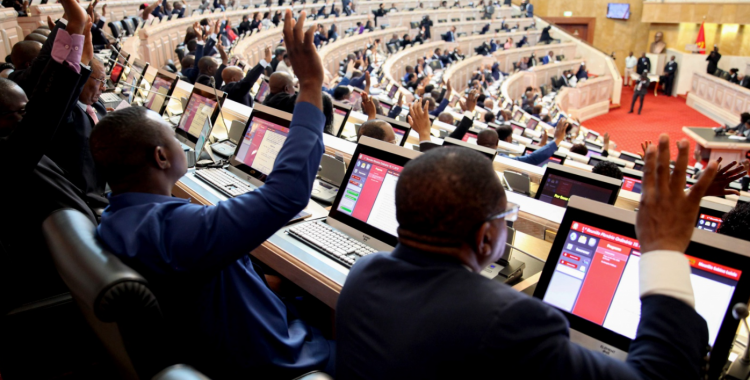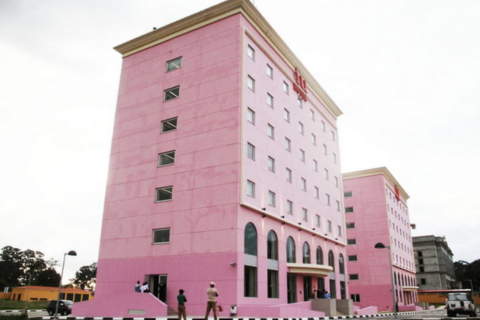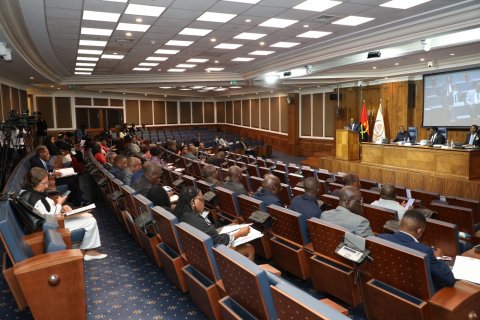The document that amended law nº 1/17, of 23 January, was approved with 125 votes in favor of the Popular Movement for the Liberation of Angola (MPLA), 38 votes against by the National Union for the Total Independence of Angola (UNITA) and nine abstentions.
The parliamentary bench of the largest opposition party, UNITA, noted in its explanation of vote that this is the fourth time that the Angolan press law has been revised “without, however, realizing the fundamental right of Angolans to freedom of the press”.
“The proponent, by the way, is called the Popular Movement for the Liberation of Angola, but he is increasingly averse to freeing public space from the control of a private group that is confused with public power,” said UNITA deputy Marcolino Nhany. .
UNITA would like “to vote in favor of a law that guarantees the principle of contradictory, which is the basic rule of impartial, plural, truthful and objective journalism”, he said.
“But we cannot, because this principle was outright rejected by the Popular Movement for the Liberation of Angola. We would like to be able to vote in favor of a law that would guarantee the protection of the independence of the mandates and careers of journalists, a law that would guarantee the freedom for professionals of the class to elect the editorial boards of TPA [Televisão Pública de Angola] themselves and from RNA [National Radio of Angola], he said.
For the UNITA parliamentary group, the introduction “of artifices such as the redefinition of concepts of public interest and institutional communication only to violate the right of Angolans to freedom of the press is a setback” because “it attacks pluralism and the separation of powers, because it does not break with the culture of absolute control of the public space of those who govern”.
The MPLA parliamentary group said it had approved the amendment to the press law “to clarify and introduce rules on polls, samples, opinion surveys, as a means of disseminating media content to be defined in a specific diploma”.
According to MPLA deputy João Pinto, this redefinition is in the public interest in the exercise of freedom of the press, with companies and media bodies responsible for ensuring freedom of expression and confrontation of different currents of opinion, which manifest pluralism.
“In this regard, there has been an attempt to associate the public interest only with public bodies, nothing more mistaken reasoning, as it deals with rights, freedoms and guarantees and is an activity that, when manifesting freedom of expression, is a matter classified as required. for all public and private entities (…) in the Constitution”, he stressed.
João Pinto stressed that the amendment will encompass respect for intellectual property, guaranteeing that patents and trademarks derived from the aforementioned rights for authors, whether natural or legal persons, are published in the press, demanding respect.
Among the various proposed amendments to the law, the incorporation of polls, samples and opinion surveys as means of disseminating content, the redefinition of the public interest in the exercise of freedom of the press, with companies and media bodies responsible for ensuring the freedom of expression and confrontation of different currents of opinion.
The executive also justified the alternations with the need to redefine the obligation to respect intellectual property, as well as to reinforce the rights and duties of the journalistic class, namely the right to a professional card, not to be arrested, removed or in any way prevented from performing the its function, except in the cases provided for by law.
The suppression of the obligation to pay up the minimum share capital of 35,000,000 kwanzas to set up a news agency, subject to the assumptions defined by the law on commercial companies, is also among the objectives of the amendments to the press law.







